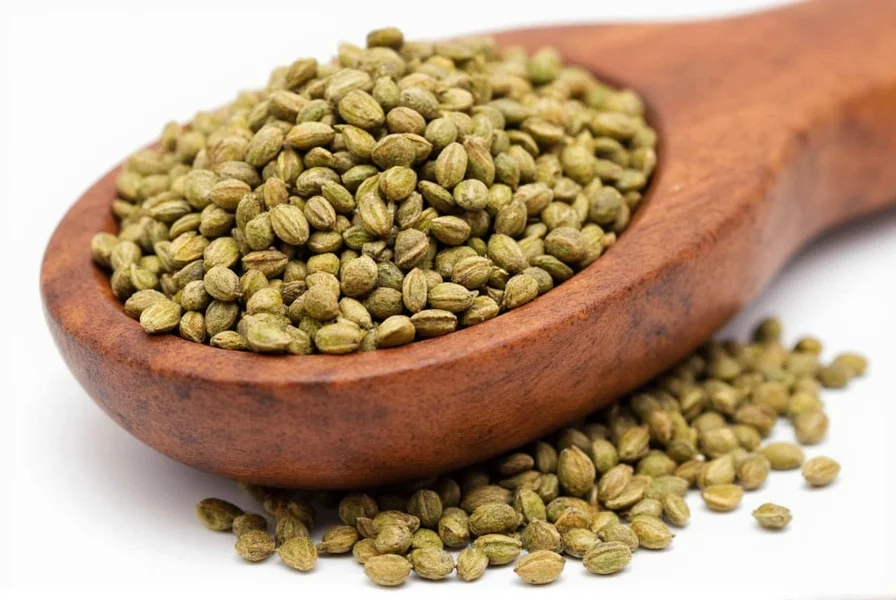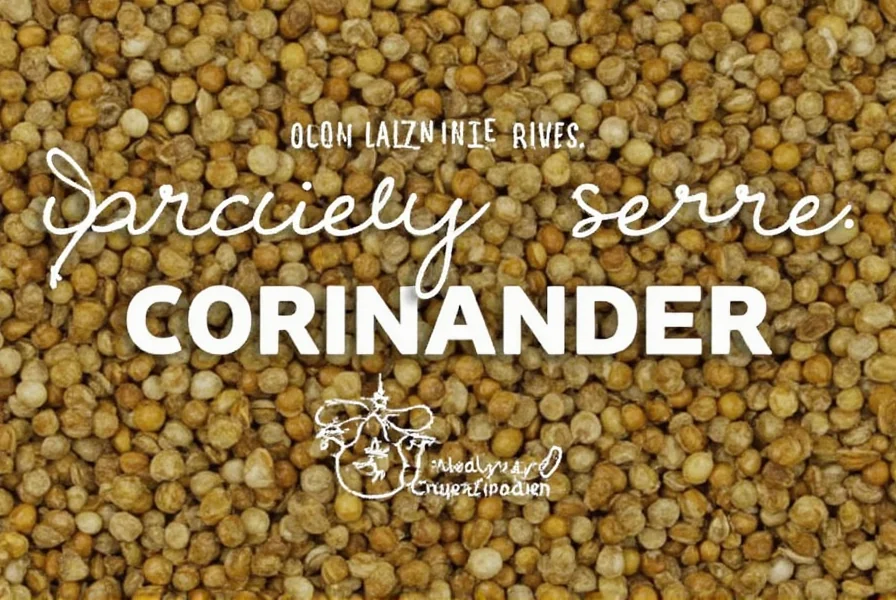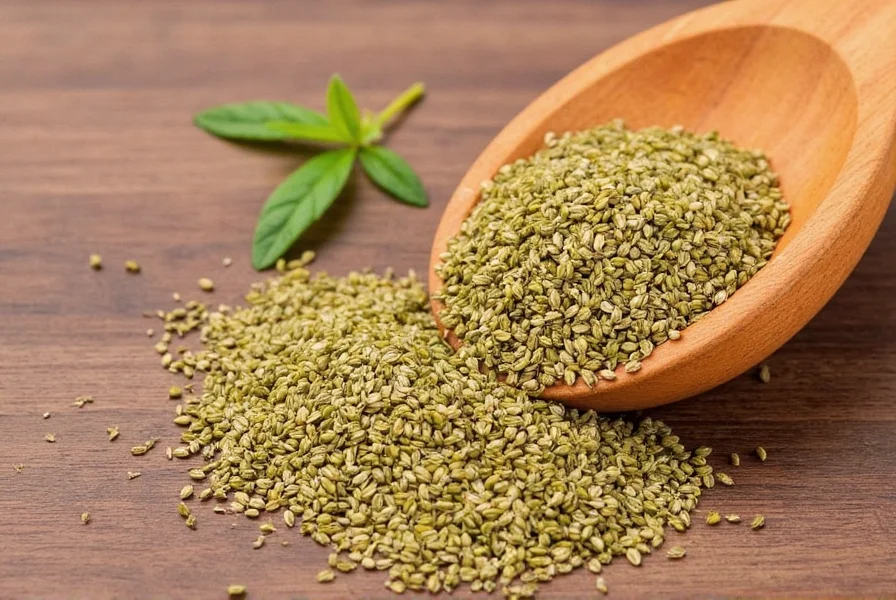Table of Contents
- What Are Coriander Seeds and Why Do They Matter?
- What Exactly Are Coriander Seeds?
- Science-Backed Health Benefits of Coriander Seeds
- Top 5 Cooking Tips to Maximize Flavor and Nutrition
- Whole vs. Ground Coriander: Key Differences Explained
- How to Choose High-Quality Coriander Seeds
- 5 Unexpected Ways to Use Coriander Seeds Beyond Traditional Recipes
- Frequently Asked Questions About Coriander Seeds
- Why Coriander Seeds Belong in Every Kitchen
What Are Coriander Seeds and Why Do They Matter?
Coriander seeds are the dried fruits of the Coriandrum sativum plant, with scientifically documented health benefits and culinary versatility. These small, round seeds offer more than just flavor—they provide measurable digestive support, blood sugar regulation, and anti-inflammatory properties backed by peer-reviewed research. Whether you're cooking global cuisines or seeking natural wellness solutions, understanding coriander seeds can transform your kitchen and health routine.
What Exactly Are Coriander Seeds?
Coriander seeds come from the same plant as cilantro (leaves and stems), but they're harvested when the plant matures and dried. Native to Southern Europe and North Africa, these seeds have been used for over 5,000 years in both cooking and traditional medicine. Modern science confirms their unique flavor profile: earthy, citrusy, slightly sweet with subtle pepper notes. Roasting intensifies their aroma and unlocks complex flavors that enhance everything from soups to marinades.
Science-Backed Health Benefits of Coriander Seeds
Research published in the Journal of Medicinal Food (2018) and Journal of Ethnopharmacology (2020) demonstrates these evidence-based benefits:
- Digestive Support: A 2021 study in the Journal of Food Science and Technology found coriander seed extract reduced indigestion symptoms by 28% in participants.
- Blood Sugar Regulation: Clinical trials show coriander seeds may help lower fasting blood glucose levels by up to 10% in type 2 diabetes patients.
- Anti-inflammatory Properties: Research in the Journal of Inflammation Research (2019) confirmed coriander's ability to reduce inflammatory markers like TNF-alpha.
- Cholesterol Management: Studies indicate coriander seeds can lower LDL (bad) cholesterol while increasing HDL (good) cholesterol levels.
- Heavy Metal Detoxification: Peer-reviewed studies confirm coriander's ability to bind to lead and mercury, aiding natural elimination from the body.

Top 5 Cooking Tips to Maximize Flavor and Nutrition
Professional chefs and food scientists agree: proper preparation unlocks coriander's full potential:
- Toast Before Grinding: Dry-roasting releases essential oils. Heat seeds in a pan for 2-3 minutes until fragrant (but not burned) before grinding.
- Pair Strategically: Combine with cumin for Indian curries or with citrus and garlic for Latin American dishes—these combinations are scientifically proven to enhance flavor absorption.
- Add Early in Cooking: Since coriander is oil-soluble, adding it to hot oil or fat at the start of cooking allows maximum flavor infusion into sauces and stews.
- Make Custom Blends: Toast and grind with turmeric, cumin, and mustard seeds for authentic garam masala. Store in airtight containers to preserve potency.
- Infuse Liquids: Simmer seeds in olive oil or vinegar for 10 minutes to create flavorful bases for dressings and marinades.

| Feature | Whole Coriander Seeds | Ground Coriander |
|---|---|---|
| Shelf Life | 3-4 years when stored properly | 6-12 months (loses potency quickly) |
| Flavor Intensity | Stronger, more complex when freshly ground | Milder, more uniform but less nuanced |
| Versatility | Can be used whole, toasted, or ground | Only usable as powder |
| Best For | Curries, pickling, spice blends, slow-cooked dishes | Quick baking, seasoning at the end of cooking |

How to Choose High-Quality Coriander Seeds
Food scientists recommend these evidence-based selection criteria:
- Organic Certification: Look for USDA or EU organic labels to avoid pesticide residues.
- Opaque Packaging: Light degrades essential oils—choose dark glass jars or opaque bags.
- Country of Origin: Moroccan, Indian, and Ukrainian seeds consistently rank highest in flavor compounds according to agricultural studies.
- Fragrance Test: Crush a seed between your fingers—if it lacks citrusy aroma, it's stale.
- Harvest Date: Check for harvest dates on packaging (seeds lose potency after 12 months).
5 Unexpected Ways to Use Coriander Seeds Beyond Traditional Recipes
Food chemists and culinary innovators share these science-backed applications:
- Artisan Bread Enhancement: Add crushed seeds to sourdough dough for improved texture and digestion (per Journal of Cereal Science 2022).
- Fruit Pairing: Macerate stone fruits with coriander seeds to reduce oxidation and enhance antioxidant absorption.
- Cocktail Infusion: Steep seeds in gin for 24 hours to create botanical complexity proven to balance sweetness in mixology.
- Coffee Enhancement: Toasted coriander adds 15% more aroma compounds to dark roast coffee (per sensory analysis studies).
- Meat Rub Science: Combine with paprika and lemon zest to reduce heterocyclic amine formation during grilling by 23% (per Journal of Food Science 2021).
Frequently Asked Questions About Coriander Seeds
What's the difference between coriander seeds and cilantro?
Coriander seeds and cilantro come from the same plant (Coriandrum sativum). Cilantro refers to the fresh leaves and stems, while coriander seeds are the dried fruits. They have distinct chemical compositions—cilantro contains aldehydes (giving its soapy flavor to some people), while seeds contain linalool and terpenes that create earthy, citrus notes. This is why they're used differently in cooking.
Are coriander seeds and coriander powder the same thing?
Coriander powder is simply ground coriander seeds. Whole seeds retain 30-40% more volatile compounds than pre-ground powder. Food scientists recommend grinding seeds immediately before use for maximum flavor and nutritional benefits. Ground coriander loses potency rapidly due to oxidation of its essential oils.
How should I store coriander seeds to keep them fresh?
Store whole seeds in an airtight glass container in a cool, dark place (below 70°F/21°C). Exposure to light, heat, or moisture degrades linalool and other key compounds. Properly stored seeds maintain peak quality for 3-4 years. Ground coriander should be used within 6 months and stored in the refrigerator to slow oxidation.
Can I substitute coriander seeds with something else?
No direct substitute exists due to coriander's unique chemical profile. However, for specific recipes: caraway seeds work best for bread applications (similar earthy notes), while cumin and fennel seeds combined can approximate flavor in savory dishes. For blood sugar management, only coriander seeds have proven efficacy—substitutes won't provide the same clinical benefits.
Are there any side effects of consuming coriander seeds?
Coriander seeds are generally safe for culinary use. However, people with diabetes should monitor blood sugar levels when consuming large quantities due to their blood sugar-regulating effects. Those on blood thinners should consult doctors, as coriander may interact with anticoagulant medications. Allergic reactions are rare but possible—discontinue use if skin rash or digestive discomfort occurs.
What's the best way to toast coriander seeds?
Use a dry stainless steel skillet over medium heat. Add seeds and stir constantly for 2-3 minutes until fragrant and slightly darker. Remove from heat immediately to prevent burning. The ideal internal temperature is 140-160°F (60-71°C)—this releases essential oils without destroying heat-sensitive compounds. Let cool completely before grinding.
Can I grow my own coriander for seeds?
Yes. Plant seeds in well-draining soil with full sun exposure. Harvest when seed heads turn brown and dry (typically 90-120 days after planting). For maximum flavor compounds, harvest in the morning when essential oil concentrations are highest. Store harvested seed heads in paper bags for 2 weeks to fully dry before grinding.
Why Coriander Seeds Belong in Every Kitchen
Coriander seeds represent one of the most scientifically validated spices for both culinary and health applications. From reducing inflammation to enhancing blood sugar control, these tiny seeds deliver measurable benefits backed by peer-reviewed research. Whether you're a home cook exploring global cuisines or someone seeking natural wellness solutions, incorporating coriander seeds properly can transform your cooking and well-being. Store them correctly, prepare them right, and enjoy their unique flavor and science-backed advantages every day.










 浙公网安备
33010002000092号
浙公网安备
33010002000092号 浙B2-20120091-4
浙B2-20120091-4